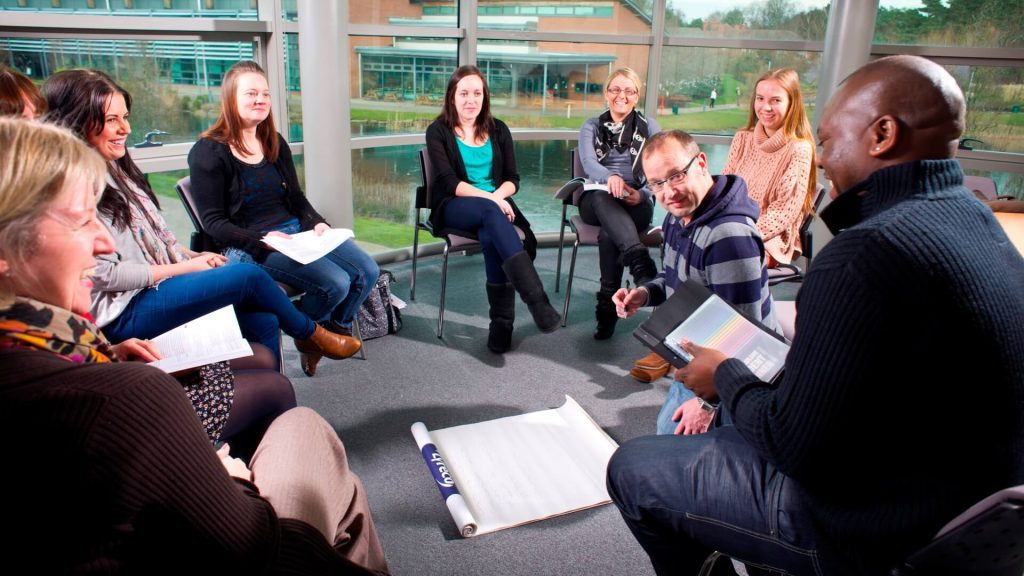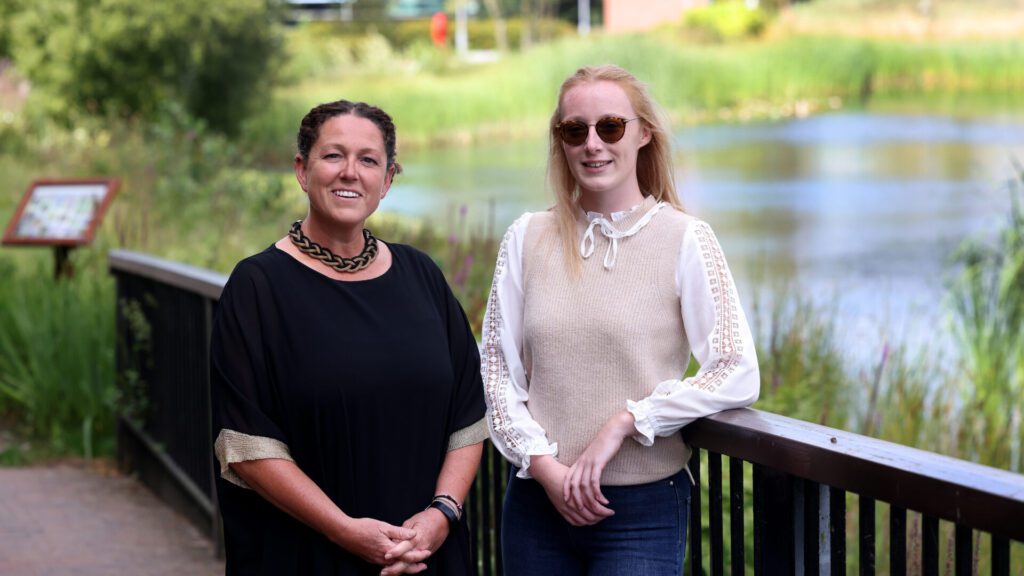Learning Disabilities Nursing & Social Work MNSW (Hons)
UCAS code: BL57
Make a difference to the lives of people with learning disabilities. Gain eligibility to register with the Nursing and Midwifery Council as a qualified learning disabilities nurse and apply to register with Social Work England to practice as a social worker.
Overview
| Course length: | 4 years full-time |
|---|---|
| Start dates: | September 2024 September 2025 |
| Location: | Edge Hill University |
| Example offers: | ABB (A Level) or DDM (BTEC) View full entry criteria |
| Subject(s): | NursingSocial Work |
| Faculty: | Health, Social Care and Medicine |
| Department: | Nursing and Midwifery |

Being unwell can be stressful for anyone. For vulnerable people, it can be an even scarier experience. These individuals depend on support from social workers and nurses who understand their needs.
Join us to train as an integrated learning disabilities nursing and understand the role of social work practitioner. Explore topics from health, social care, education and other related areas. Discover what it means to be part of multidisciplinary teams.
This innovative and intensive integrated Masters is delivered alongside our partners in the Cheshire & Merseyside Social Work Teaching Partnership, and leads to eligibility for two professional awards.
To prepare for provision of treatments for adults with learning disabilities, you’ll explore their complex needs. This includes everything from psychosocial issues to communication difficulties, behavioural challenges to end-of-life care. In your social work modules, you’ll look at a range of issues relating to social justice, structural inequality, anti-discriminatory and anti-oppressive practice.
By the end of the course, you’ll have the skills and practical experience you need to excel in the role of learning disability nurse. You’ll also understand care through the lenses of service users, their families, and carers.
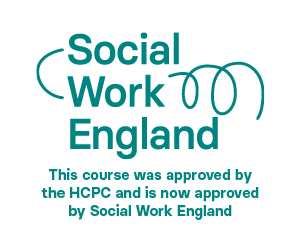
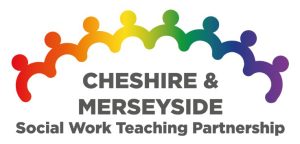
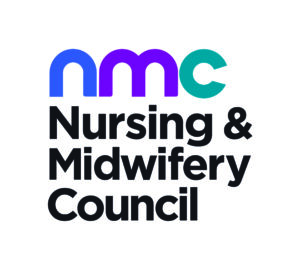
Course features
-
Professional accreditation
-
Professional practice placements
What you'll study
We’ve designed the course to meet the national requirements for both nursing and social work education. In Year 1, you’ll look at nursing and social work as separate professions. However, we’ll introduce you to the life sciences which underpin them both. Preparation for your first nursing placement will also be key. Develop the knowledge you’ll depend on and the practical skills that will help you provide the best possible care.
Hands-on experience meets knowledge-building in Year 2. Get up to speed with current practices in adult care, as well as the care of children, young people and their families. Understand care across a diverse range of contexts and settings. Explore law and policy and discuss their implications for nursing and social work practitioners. You’ll apply everything you’ve learnt to practical experiences in nursing and social work.
Take your learning to the next level in Year 3 by looking at complexity in health and social care. We’ll discuss what support individuals with learning disabilities need, as well as examining care on a local, national and international level. Placements will be a key part of your learning, but you’ll discover the world of research too. Want to experience nursing overseas? We’ll let you know about opportunities to do a placement abroad.
An extended integrated nursing and social work practice placement is your top priority in the final year. It’ll challenge you to become a leader, apply your knowledge and understand what research development in this area looks like.
How you'll study
Seminars, lectures, work-based learning, tutorials, simulated practice and technology enhanced learning will be used to deliver this programme. While the majority of classes will take place at Edge Hill University, some modules may involve studying at sites other than Ormskirk in which case you will be responsible for travel and parking costs.
Time in nursing and social work practice will be undertaken in a variety of health and social care settings within the NHS, independent and voluntary organisations. Practice learning environments range throughout the North West and neighbouring geographical areas. This is an extensive area which we would encourage you to become familiar with, as your practice experiences may be allocated from across the whole geographical area, but predominantly within the Cheshire and Merseyside region. Practice placements hours will include weekends, early morning, evening and night work to ensure access to a full range of practice experiences across 24 hour care. You will be responsible for travel and parking costs while on placement.
How you'll be assessed
The programme incorporates a range of assessment opportunities. These include essays, presentations, text analysis, group work, portfolios, simulated practice, carers’ assessments, video/audio diaries, role plays and exams. Practice learning is also assessed by appropriately qualified nursing practice assessors and social work practice educators.
Who will be teaching you
The programme is delivered by research-active professionals within the fields of nursing and social work who have expert knowledge of a wide range of service settings.
A dedicated service user and carer group collaborates with the programme team to develop, strengthen and advance the quality of the learning experience.
Contributors to the programme include people who have direct experience of services, specialist practitioners, senior managers and policy makers.
Social work education at Edge Hill University is provided in collaboration with the Cheshire and Merseyside Social Work Teaching Partnership. The teaching partnership comprises of four universities, eight local authorities, two community NHS trusts and one voluntary sector organisation, drawn from the partnership’s geographical footprint across Greater Merseyside, Cheshire West and Chester, and West Lancashire.
Entry criteria
Entry requirements
Typical offer 128 UCAS Tariff points. No specific subjects are required. You will also need GCSE English Language and GCSE Mathematics at Grade C or Grade 4 or above (or equivalent).
Eligible candidates must provide evidence of study within the three years prior to application. An interview forms part of the selection process.
If you accept an offer from Edge Hill you will need to satisfy the requirements of the Nursing & Midwifery Council and Social Work England in respect of physical and mental fitness and will be required to apply for a Disclosure and Barring Service (DBS) Enhanced Disclosure indicating that you meet the mandatory criteria of ‘Clearance to Work with Children and/or Vulnerable Adults’. Further information will be sent to you after you have firmly accepted an offer.
Example offers
| Qualification | Requirement |
|---|---|
| A Level | ABB. |
| BTEC Extended Diploma (or combination of BTEC QCF qualifications) | Distinction, Distinction, Merit (DDM). |
| T Level | Overall grade of Distinction. |
| International Baccalaureate (IB) | We are happy to accept IB qualifications which achieve the required number of UCAS Tariff points. |
| Access to Higher Education Diploma | 45 credits at Level 3, for example 30 credits at Distinction and 15 credits at Merit. The required total can be attained from various credit combinations. |
Please note, the above examples may differ from actual offers made. A combination of A Level and BTEC awards may also be accepted.
If you have a minimum of two A Levels (or equivalent), there is no maximum number of qualifications that we will accept UCAS points from. This includes additional qualifications such as Extended Project Qualification (EPQ), AS Levels that haven't been continued to A Level, and General Studies AS or A Level awards.
How to apply
Apply full-time
Read our guide to applying through UCAS to find out more about the application process.
International
EU/EEA and Swiss students who have settled or pre-settled status under the EU Settlement Scheme, as well as Irish nationals, are eligible to apply for this course.
Please note this course is not available to other international students. Please see our A-Z of courses for alternative options.
Should you accept an offer of a place to study with us and formally enrol as a student, you will be subject to the provisions of the regulations, rules, codes, conditions and policies which apply to our students. These are available at www.edgehill.ac.uk/studentterms.
If you join a full time undergraduate degree at Edge Hill University, we will guarantee you the offer of a room in our halls of residence for the first year of your course.
Discover our accommodation
Facilities

The Faculty of Health, Social Care and Medicine offers outstanding facilities for the education and training of health and social care professionals.
The contemporary teaching and learning resources include leading edge clinical skills facilities, an 860-seat lecture theatre, and a variety of teaching rooms and social learning spaces.
Where you'll study
Clinical Skills and Simulation Centre
Faculty of Health, Social Care and Medicine
Learning resources
The Clinical Skills and Simulation Centre offers a variety of simulated environments from home, through primary and emergency care, to secondary care and beyond. The flexible and adaptable facilities include a ward environment, operating theatre, an anatomy and ultrasound resource centre, a ‘Better at Home’ suite, clinical skills area and consultation rooms.
You will benefit from access to a wide variety of healthcare equipment, as well as a range of full-body patient simulators that can breathe, talk, have pulses and can simulate a wide range of symptoms and clinical conditions. This will enable you to undertake practical scenarios in realistic settings, providing ideal preparation for professional practice placements and future employment.
Finance
Tuition fees
UK Full-Time
£9,250
a year
EU/EEA and Swiss students who have settled or pre-settled status under the EU Settlement Scheme, as well as Irish nationals, may be eligible for the UK tuition fee rate.
Financial support
Students on this course may be entitled to the NHS Learner Support Fund if eligible. Visit the NHS Business Services Authority website for further information.
Subject to eligibility, UK students joining this course can apply for a Tuition Fee Loan from the Government to cover the full cost of tuition fees. UK students enrolling on the course may also be eligible to apply for additional maintenance loan funding to help with living costs. Please view the relevant Money Matters guide for comprehensive information about the financial support available to eligible UK students, together with details of how to apply for potential funding.
Your future career
After graduating from the Learning Disabilities Nursing & Social Work MNSW degree, your CV will stand out with a Masters level academic qualification and two professional awards.
You’ll be ready for any role caring for people with learning disabilities who have complex and long-term conditions. Your integrated health and social care perspective will help you provide effective care and protect them from harm.
We continue to work with prospective employers to identify future areas of employment for practitioners with dual nursing and social work registration.


